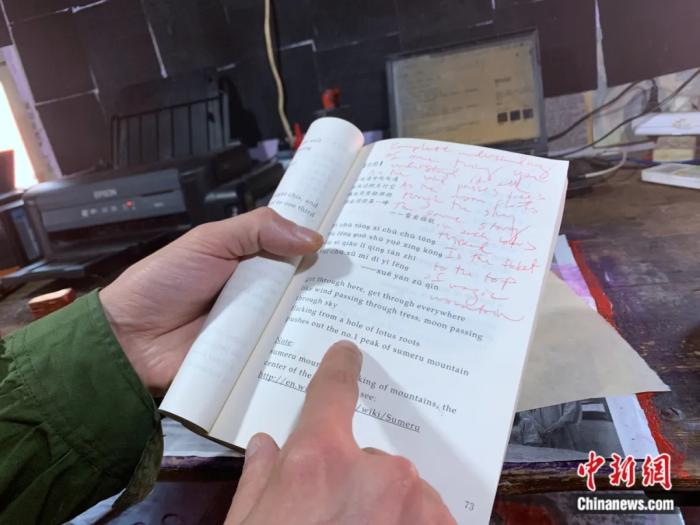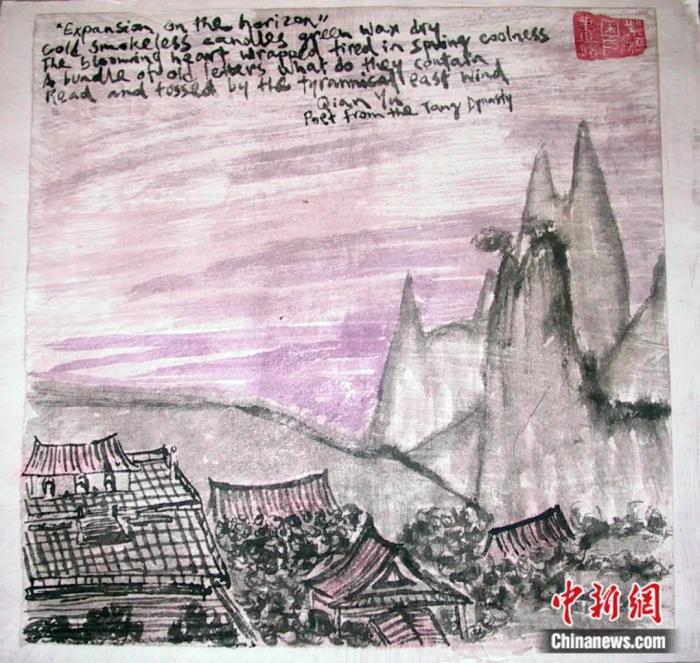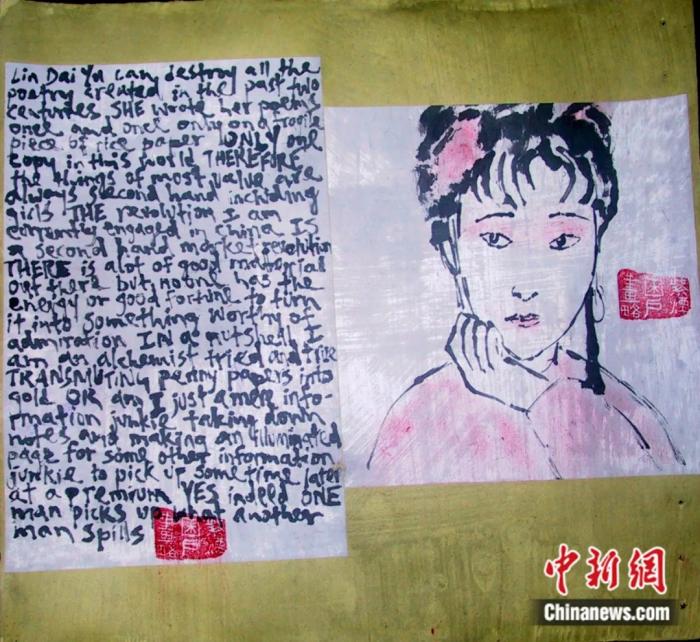Canadian Chinese poetry lover translates over 1,000 Chinese poems into English in six years
Because of his deep fascination with Chinese poetry, 37-year-old Brandon Collins-Green from Canada spends nearly 10 hours a day translating Chinese poems into English, having translated more than 1,000 Chinese poems over the course of six years.

Photo shows Collins-Green in the middle of his translation work. (Chinanews.com/Jiang Tao)
After he finishes a translation for a poem, Collins-Green, whose Chinese name is Lin Buran, will write down the English version of it onto a piece of paper with a brush pen, then draw a picture beside the poem as an accompanying illustration, all in the hope of eventually finishing a piece of work that might fully embody the beauty of both Chinese poetry and Chinese fine arts.
Collins-Green got his bachelor’s degree and master’s degree at Chinese universities, and he is currently a doctoral student of ancient Chinese literature at Jiangxi Normal University based in east China’s Jiangxi Province.
As a Chinese poetry lover, the man started to study and translate Chinese poems into English in an endeavor to express the beauty of the poems. During the translation process, he has also gained a deeper understanding of the Chinese language.

Photo shows a poem that Collins-Green has been translating recently. (Chinanews.com/Li Yunhan)
Collins-Green had thought about learning another foreign language after he mastered Chinese, but that day has yet to arrive since he has found that there’s always new knowledge about the Chinese language that he can still learn. “The language of classical poems is impressively elegant, and is worth a lifetime of learning,” said Collins-Green.
When he encountered difficulties in expressing the names of people and places, as well as translating anecdotes into English, Collins-Green would first paraphrase them so that their translation would become easier to understand within the context of the English language.

Photo shows a piece of translation work. On the upper left-hand side there is a poem and in the remaining space there is a picture that Collins-Green drew to illustrate the poem. (Photo courtesy of Collins-Green)
Collins-Green runs a workshop that sits next to his university. At the workshop, which covers only less than 10 square meters, a stack of paper, brush pens, pigments, books and a computer, as well as a pile of different works created by Collins-Green rising to a height of nearly half a meter, can be seen. “This place is small, but I like it very much because this is where I concentrate on translation and can become productive,” said Collins-Green.
“When my friends and relatives at home saw my works, they also thought that the Chinese poems were really fascinating,” Collins-Green said, adding that there are currently very few people in the world who can translate Chinese poems into English and illustrate them with pictures. The man hoped that he could make a contribution to promoting cultural exchanges between China and the Western world through his efforts.

Photo shows a translation work by Collins-Green. (Photo courtesy of Collins-Green)

Photo shows Collins-Green displaying his works during an exhibition. (Photo courtesy of Collins-Green)

Collins-Green shows a piece of his translation work. (Chinanews.com/Li Yunhan)

Photo shows Collins-Green displaying his works during an exhibition. (Photo courtesy of Collins-Green)

Photo shows Collins-Green displaying his works during an exhibition. (Photo courtesy of Collins-Green)
Photos
Related Stories
- Legless man writes 1,000 love poems for girlfriend
- Poem recital party held to greet Int'l Labor Day in China's Hohhot
- Feature: Chinese migrant workers pour out dreams in poems
- The poetic dreams of a disabled peasant woman
- First World War poems shown on London underground
- Root carving with Mao's poem and the Great Wall sells for 12 million yuan
Copyright © 2021 People's Daily Online. All Rights Reserved.










